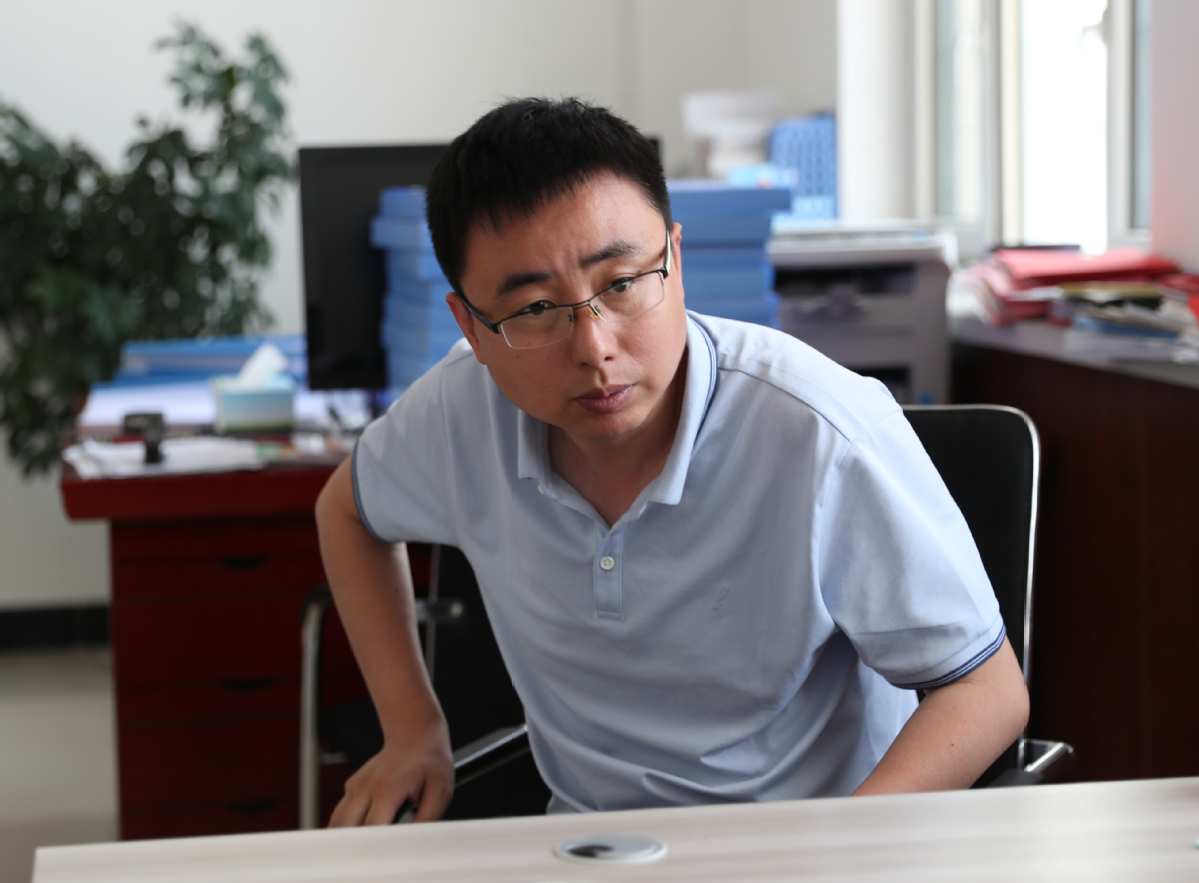Entire village community in Ningxia moved out from the poorer areas
60,000 residents from impoverished region have been resettled in Minning town in the past two decades


Poverty elimination plan
Xi has set 2020 as the target year to eliminate extreme poverty in China. Xi has said, "No one should be left behind on the road to a moderately prosperous society."
The local government built houses and facilities, including schools, community hospitals, and shopping malls, for the newcomers.
With strong policy support, experts and enterprises from the eastern province of Fujian came to Minning and taught farmers how to grow mushrooms, grapes and flowers. Free job training was provided to help farmers lift their families out of poverty.
Every family that moved from Xihaigu to Minning was given a 54-square-meter house with electricity, tap water and a solar water heater. It has a courtyard too.
Liu Li and her family decided to move to Minning from Xihaigu in August 2013.
"Minning is an entirely different world," Liu said.
"We lived in an adobe house (made from earth and organic materials) in Xihaigu where farming was at the mercy of weather."
When the weather was favorable, Liu's family could reap a harvest that was just enough to feed all the stomachs.
But the climate was always harsh. In April and May when the crops needed water, there was a spell of dry weather. In autumn, when wheat was harvested, it rained heavily.
"People say 'no pain, no gain'. In Xihaigu, we worked painstakingly but had nothing," Liu said. "We felt hopeless there."
After moving to Minning, Liu had daily pay jobs at several construction sites. Sometimes she was jobless.
In July 2014, Liu started working at Lilan Winery. It was her first regular job.
"I started with pulling weed in the vineyard, and my diligence and conscientiousness was appreciated by the boss," she said.
One year later, Liu ended up in the brewing workshop, cleaning rooms and oak barrels and filling wine into bottles. In 2015, she got a promotion. She was made in charge of the workshop.
Liu's husband, Liu Faming, was also employed by the winery in 2016. He learned how to grow grapes and brew. Now he takes care of the maintenance of a 60-hectare vineyard.
"Now I am a regular worker here and have a monthly salary. I'm so happy with my life in Minning," she said.
The Lius are grateful for the relocation project that has changed their life.
The couple together earn a monthly salary of 10,000 yuan.
Their son, Liu Haodong, is 13 years old and in his first year of high school. Liu junior loves Qin Dynasty (221-206 BC), the first dynasty of Imperial China, and wants to be an archaeologist.
The boy has such a dream, thanks to the family's resettlement in Minning and better living conditions. He can visit bookstores often and buy the history books he wants.
"I believe that knowledge is the key to success, and I hope my son will have that key to a fantastic life," Liu Li said.
Zhang Jun, born in 1986, was a fourth grader when his family moved to Minning. The first school in the town he went to was 7 km from his home. In 1998, he was transferred to a new school that was only 3 km away.
The school, which was built on the sands of Gobi Desert, had only 60 students. The school, which comprised two single-story houses, had no playground.
"When we had physical education classes, we ran on barren land," Zhang recalled.
The Minning Middle School, where Zhang attended, was in the middle of a desert. He had to ride a bicycle at 6:30 am to the school, which was 12 km away.
"It was difficult to ride a bicycle on a graveled road, and it was always windy in the desert," Zhang said.
Many students dropped out because of the distance and their families' financial constraints.
The concrete open space in front of the local government building was the ground where Zhang and his peers played basketball.
Zhang joined the Ningxia University in 2006, majoring in physical education. After his graduation, he got a job in a company in Yinchuan.
Watching a basketball match between students of a primary school in Yinchuan and those from Minning in 2014, Zhang's heart was broken.
The students from Minning wore cloth shoes, while their peers from Yinchuan wore basketball shoes. It was not surprising that Minning kids lost the game.
The Minning boys reminded Zhang of the hard life during his childhood. He decided to return to Minning to help the children.
He became a physical education teacher at a primary school in Minning in 2016 and formed a basketball team, which became the champion of the Yao Foundation Hope Primary School Season 2017.
The basketball season was started in 2012 as a public welfare program, which aims to enhance both the mental and physical health of teenagers living in China's underdeveloped areas. The program teaches children key team-building skills using basketball as a tool.
























